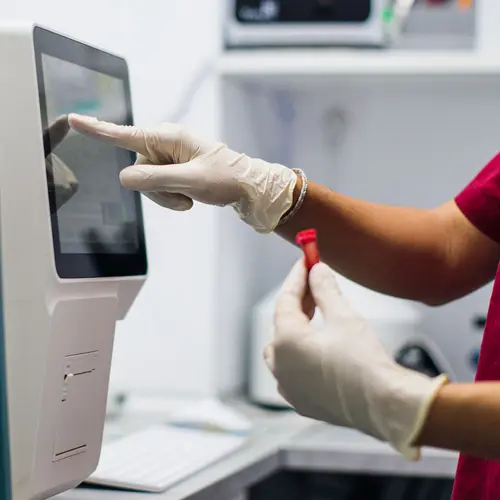There's no one best treatment for Crohn's disease. So your doctor will try to find what works best to stop your symptoms and keep the disease from damaging your body.
To create your treatment plan, your doctor will check out:
- What kind of complications you have
- How bad your symptoms are
- Other medical conditions you have
- How you’ve responded to medication before
- How side effects of medication might affect you
They might recommend medication, diet changes, a spell of bowel rest, surgery to remove or repair parts of your digestive tract, or a combination of these.
Medication
Drugs are usually your doctor’s first choice to treat Crohn’s.
Crohn’s meds tamp down your body’s inflammatory response. This helps stifle your symptoms and gives your intestines time to rest.
Some of the different common types are:
Corticosteroids (steroids). They calm your immune system and ease swelling. Your doctor might prescribe them for a short time if your Crohn’s is moderate to serious. But you probably won't stay on them long, since they can cause serious side effects.
Immunomodulators, which modify your immune system to stop inflammation. Your doctor may prescribe these if other drugs haven't worked. They’re heavy duty, and may take weeks or months to kick in.
Biologic therapies. These drugs target certain proteins that your immune system makes. This cuts down inflammation in your intestines. You’ll inject them yourself at home or get them every two months or so at a medical center to help your body go into remission.
Aminosalicylates. These help tame inflammation in your digestive tract. Your doctor is more likely to prescribe them if you’ve just been diagnosed with Crohn's and have mild symptoms.
Other meds. You might also take acetaminophen to control the pain of Crohn's. (Stay away from ibuprofen, naproxen, and aspirin, which can make your symptoms worse.)
Your doctor might also give you antibiotics to ward off infections in your digestive tract that could lead to abscesses or fistula (abnormal passageways between organs).
And your doctor could recommend loperamide, a short-term treatment for severe diarrhea.
Bowel Rest
Your doctor might advise bowel rest if your symptoms are serious. It’s just what it sounds like -- your intestine takes off work for several days to several weeks.
You won't eat during this time. Instead, you might only drink clear liquids. Or you could get nourishment through an IV or a feeding tube.
This treatment often works well to help your intestines heal.
Diet and Nutrition
Crohn’s isn’t caused by any certain food or foods. But symptoms like appetite loss and diarrhea can keep you from getting enough nutrients or drain them from your body.
And some food ingredients could aggravate your symptoms or trigger a flare-up:
- Lactose, a protein found in dairy products
- Intense spices
- Sugar
- Fat
There's no one diet that doctors recommend for Crohn's. Many people find that soft, bland foods work best for them, especially when they're in a flare.
These methods are gentle to your body and can help you maintain a healthy diet:
- Eat four to six small meals a day instead of two to three large ones.
- Stay hydrated. Drink enough water to keep your pee clear or very pale yellow.
- Use simple cooking methods: boil, poach, grill, or steam.
- Know which foods your body handles best and keep your kitchen stocked with them.
Surgery
Even when other treatments work for a time, most people with Crohn’s need surgery at some point. Your meds might no longer do the job, or part of your bowel may need to be removed to save the healthy parts. You also might need surgery to repair a fistula, abscess (infection), or intestinal blockage.
These are some common types of surgery you might get for Crohn's:
- Strictureplasty opens up a blockage that happens when long-lasting swelling thickens the walls of your digestive tract.
- Bowel resection. The surgeon removes damaged parts of your small or large intestine, then joins the two healthy ends.
- Proctocolectomy or colectomy removes your colon (large intestine) or rectum, or both. The surgery changes the path of your digestive tract so waste can pass through your body. In a proctocolectomy, the waste is diverted to an ostomy bag on the outside of your body. In a colectomy, the waste moves from the lower part of your small intestine to your anus.
- Fistula removal might be done when meds don’t heal these ulcers, which form tunnels to drain pus from an infection. Your surgeon might close the fistula with a plug or medical glue, or drain the infection.

